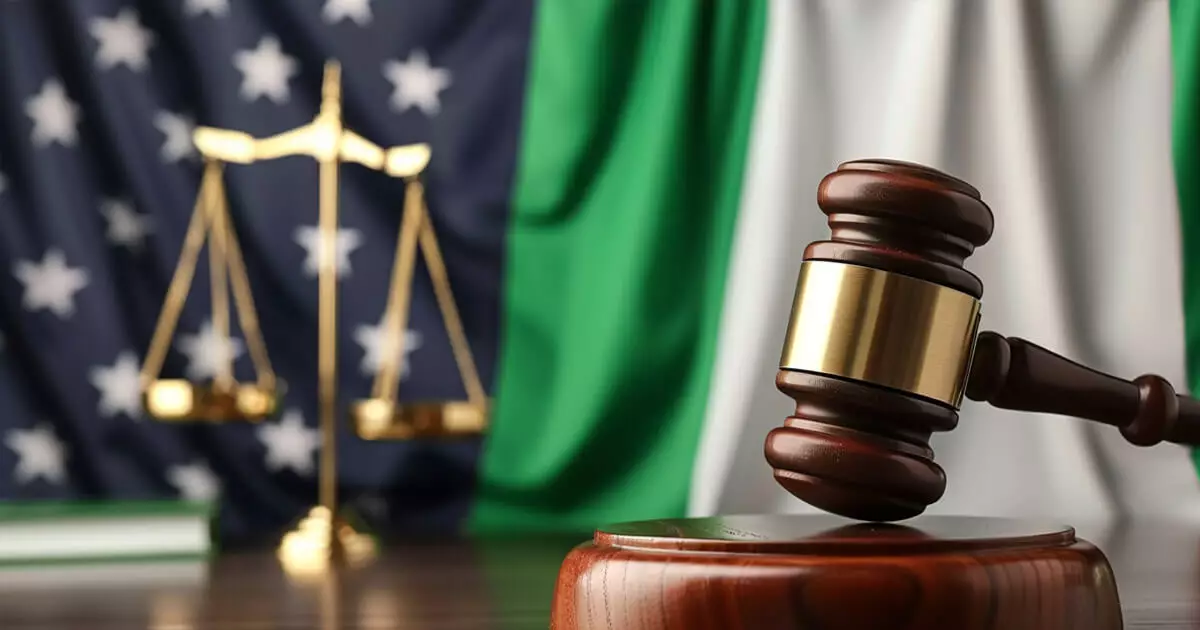In a significant move aimed at combating the rise of cryptocurrency-related illegal activities, the United States and Nigeria have launched a Bilateral Liaison Group. This collaboration, announced on October 23, 2023, underscores the US’s commitment to bolster Nigeria’s abilities in tackling cybercrimes linked to digital currencies. Both nations recognize the urgent need to address the complexities that come with the growing adoption of cryptocurrencies in their respective markets.
Crypto adoption has surged dramatically in recent years, with Nigeria emerging as a leader in Sub-Saharan Africa. According to Chainalysis, the country is currently ranked as the second-largest cryptocurrency adopter globally. This surge in popularity highlights the immense potential and advantages of digital finance, particularly the ability to execute low-cost, swift cross-border transactions. Conversely, this rapid expansion brings about unique regulatory challenges, as the decentralized nature of cryptocurrencies often serves as a double-edged sword, enabling illicit activities alongside legitimate uses.
In contrast, the United States has carved out a significant presence in the crypto arena, particularly through institutional engagement with Bitcoin and Ethereum ETFs. This landscape engenders a complex interplay between innovation and regulation, necessitating robust mechanisms to thwart exploitation by illicit actors.
The establishment of the Bilateral Liaison Group aims to create a collaborative environment where both countries can pool their resources, share intelligence, and implement coordinated responses to combat the illicit use of cryptocurrencies. A primary focus will be on enhancing Nigeria’s investigatory capabilities while promoting synergy between law enforcement agencies and regulatory bodies. The platform intends to streamline information-sharing processes, paving the way for timely interventions against financial malfeasance.
Moreover, the partnership stipulates the development of advanced monitoring tools and frameworks to track cryptocurrency transactions that may be linked to criminal behavior. The integration of blockchain analytics into law enforcement operations will play a critical role in identifying and mitigating risks associated with digital financial crimes.
Recognizing the importance of education, the Bilateral Liaison Group will also involve training programs for Nigerian law enforcement personnel. These initiatives are crucial in equipping officers with the necessary skills to navigate the complexities of cryptocurrency investigations. Additionally, raising public awareness about the risks and realities of cryptocurrency investment is a pivotal aspect of the partnership. By fostering a well-informed public, both nations hope to mitigate the impact of fraudulent schemes that often target unwary consumers.
The successful realization of objectives under the Bilateral Liaison Group could pave the way for the United States to enter similar cooperative agreements with other countries. As cryptocurrency transactions transcend geographical boundaries, the formation of such partnerships could prove instrumental in addressing global challenges associated with illicit financial activities. By fostering a collaborative and informed environment, both nations aim to establish a more secure digital financial landscape, ultimately benefiting legitimate users and investors alike.
Through the combined efforts of the US and Nigeria, this initiative not only represents a significant step forward in the fight against cybercrime but also signals a strong commitment to embracing the future of finance with responsibility and integrity.

